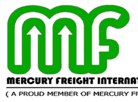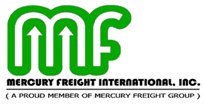 Manila-based Mercury Freight International, Inc began when its founder Bayani Coching left his cushy corporate job to take a business risk that could jeopardize his family’s financial stability.
Manila-based Mercury Freight International, Inc began when its founder Bayani Coching left his cushy corporate job to take a business risk that could jeopardize his family’s financial stability.
Twenty-five years ago, Coching was a top-level manager in an established logistics company. At that time, he had already racked up 16 years of solid managerial experience working with different logistics companies and was comfortable where he was.
But a friend, shipping industry player Henry Tsai, came to him with an intriguing proposition: to handle for him a big logistics project for the US military in Clark airbase, two hours by car from the Philippine capital city of Manila. The housing project would take two years to complete and would be worth $26 million, 10 percent of which was the budget for logistics.
Coching accepted the challenge but with a few conditions: He would leave employment and set up a new company he would run himself as the equal partner of Tsai. In May 1987, Mercury Freight International, Inc, licensed customs broker and breakbulk agent, was born.
Two years later, the Clark project was successfully completed with Mercury Freight pocketing a tidy profit. Not much later though, Coching and his business partner decided to part ways amicably over differing views of how the company should evolve.
Under their partnership agreement, Coching got to keep Mercury Freight. Now fully under Coching’s direction, Mercury Freight would be transformed into a full-fledged NVOCC, LCL groupage operator and international freight forwarder.
Soon after, the company signed exclusive partnerships with agents in Canada, Singapore, Hong Kong, Malaysia, India, the United Kingdom and Australia. Its active participation in the less-than-container load market led to awarding of shipments even to destinations outside its network.
The rapid growth in business signaled the need for a larger network coverage. This came in the form of a collaboration with the Globelink group, an international alliance of companies offering consolidation services. As Globelink’s Philippine network partner, Mercury Freight developed LCL groupage services out of Singapore to areas not regularly serviced by other logistics providers.
Mercury Freight’s association with Globelink came at an opportune time. Globelink’s globalization programs were in full throttle and company offices were rapidly being opened in Australia, Spain and Egypt.
Globelink had also created a private alliance called Global Consolidator Alliance, or GCA, composed of the most active and loyal members of the Globelink network in Asia, Europe, the US, Africa, the Middle East and the Soviet Union. This meant extended network reach for members of both the Globelink network and GCA.
Coching is quick to acknowledge Globelink’s contribution in turning Mercury Freight into a leading LCL groupage operator in Manila and Cebu. This, coupled with the company’s commitment to the continuous upgrade of employee skills as well as facilities, has been the key driver in Mercury Freight’s long-running success.
A quarter of a century since its founding, Mercury Freight now offers a complete line of logistics services—from sea and air freight forwarding, land transportation, shipping documentation, customs clearance, warehousing and distribution, and project cargo handling to ship agency and chartering.
Under its wing are four Philippine branches (Cebu, Davao, Cagayan de Oro and Cavite, the latter on acquired premises). In addition to its own facility in Clark, the company recently opened a sales/representative office in the US.
Mercury Freight has defied the challenges posed by global and local economic crises, Philippine government turnovers, and an ever-evolving logistics industry to chalk up significant accomplishments through the years. What makes these successes even more remarkable is that they were achieved by a 100 percent Filipino-owned corporation in an increasingly competitive industry ruled by multinational companies.
[copyscape]





